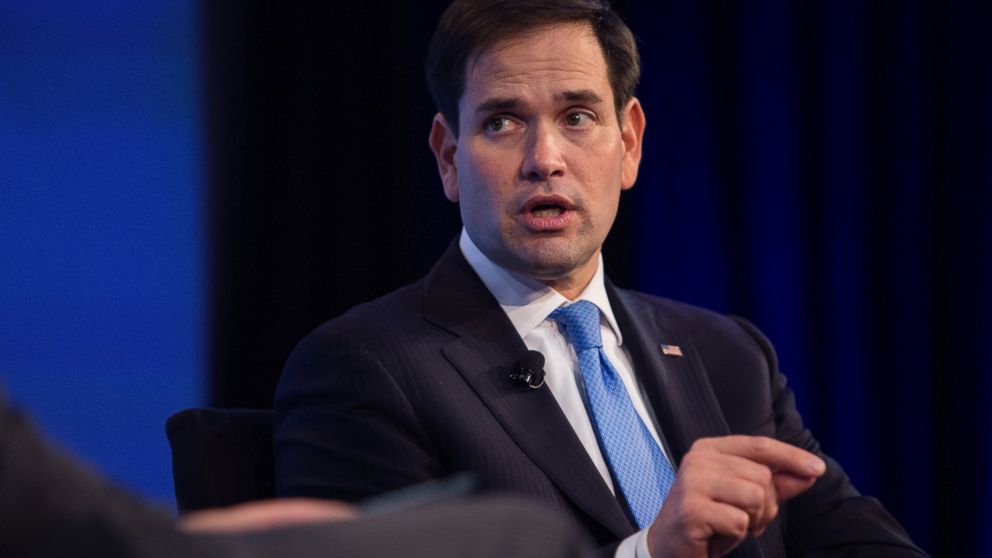Taxing the Internet: The Latest Divide Among Republican Candidates
Whether to tax online shoppers is a new subject of divide among Republicans.

— -- In an economic policy speech delivered earlier this week by presidential candidate Marco Rubio, he rolled out a fresh new line of attack, taking aim at some of his rivals for wanting to tax the Internet.
“Other Republicans running for president support an Internet sales tax that could subject businesses to audit from almost 10,000 jurisdictions around the country,” Rubio said in Sarasota, Florida, adding the tax was an “anti-free market idea.”
Taxing online shoppers is a new subject dividing Republicans and one that is sure to come up in Thursday night’s Fox Business debate.
“The Internet is the marketplace of the 21st century and it’s unacceptable that anyone who claims to be a conservative would join the liberal call for an online tax,” added Rubio.
He was hitting Jeb Bush and Chris Christie, who have both voiced support for some form of Internet sales taxes.
In Christie’s home state of New Jersey, Internet sales taxes already exist.
The New Jersey governor has said that taxing the Internet was a “fairness” issue.
“My view is that [a tax-free Internet] started when the Internet was just getting itself going and try to give it a way to go, and now I think it’s giving an unfair advantage to the brick and mortar stores,” Christie said in 2013. “The Internet has matured to the point where it can stand on its own.”
Christie believes it should be left up to the state to decide whether to tax its residents.
Jeb Bush, meanwhile, says he is in favor of a national solution.
“A solution that recognizes that the Internet is here to stay and that there is an increasing disparity, and so long as it’s not used to raise revenue for governments, that parity would make sense,” Bush said in November.
Bush added, “I think there’s just a compelling argument to be made.”

